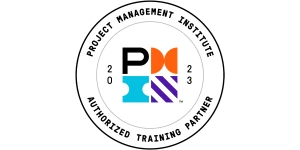From Lean to Green: Optimizing Airline Efficiency and Sustainability
The aviation industry is facing a major conundrum. Demand for air travel is increasing globally, especially in emerging markets with booming middle-class earners. However, airlines face increasing demands to cut emissions and optimize their operations for sustainability.
As many countries enact regulations to lower carbon emissions, airlines must find innovative ways to make their operations more climate-friendly, such as adopting sustainable biofuels instead of fossil fuels. These climate-friendly solutions tend to be expensive in the short term, so airlines seek lean management experts to help reduce costs while optimizing customer satisfaction. This article will explore how lean principles are transforming the aviation sector for good.
Lean principles in the airline sector
Lean principles aim to reduce waste and make operations more efficient. Airlines have complex operations where many things can go wrong, ranging from delayed or missed flights to lost luggage, long layovers, and wrong scheduling.
Let’s see some stats that indicate how massive airline operations are:
- The U.S. Federal Aviation Administration handled 16.3 million flights in 2023, or nearly 45,000 daily.
- U.S. airlines recorded over 800 million passengers for domestic and international flights in 2023. China came second with over 440 million passengers.
- Over 25,000 commercial planes operate worldwide, handling hundreds of thousands of flights daily.
These massive operations mean virtually infinite issues could disrupt the global airline sector. Hence, the industry requires hands-on experts always to monitor and resolve issues before they cause problems. These experts apply the tools taught in Lean Six Sigma courses to optimize airline operations for efficiency and sustainability.
1. Data collection
Optimizing the airline sector starts with collecting data, a core part of Lean Six Sigma. For instance, airlines can’t optimize for sustainability without first monitoring how much carbon emissions their fleet is responsible for. They must monitor passenger traffic flow to identify trends and ensure customers always have access to air travel during times of heightened demand. Lean Six Sigma techniques empower airline employees to collect accurate data from surveys and focus groups and make good decisions based on the data.
Airlines can strategize to reduce emissions to the optimal level when they have accurate emissions data. If the airline buys carbon credits, the correct data lets them know the optimal amount of purchased credits to offset their emissions.
2. Waste reduction
Airlines have an abundance of processes that could be considered waste. Employee time is one of the eight wastes taught in lean principles, greatly affecting airlines. Some airlines find it difficult to accurately estimate the required staffing level in different departments, leading to issues like understaffed baggage handlers and a single clerk attending to dozens of customers simultaneously.
Lean principles empower airline employees to identify any process identified as waste and reduce or eliminate it, improving the airline’s efficiency.
3. Customer service
Customer service is an invaluable part of the airline experience. Bad customer service chases passengers away, meaning airline companies must avoid it at all costs. Passengers can now find many airports with automatic check-in procedures that let them print their boarding passes and tickets. This feature speeds up the passenger check-in process and is a good example of how airlines apply Lean principles to make their operations more efficient.
Success story – Southwest Airlines
Southwest Airlines is the largest low-cost carrier worldwide, ferrying over 120 million passengers annually. Southwest has used our training programs at 6Sigma to certify its staff in Lean Six Sigma techniques. These techniques have helped Southwest stay ahead of the competition and maintain its lead as the world’s largest low-cost carrier.
Southwest Airlines focuses on the Voice of the Customer (VOC), prioritizing giving customers what they want. The company has developed a reputation for offering pleasant passenger experiences by listening to and incorporating customer feedback. It has one of the lowest complaint ratios of US airlines, according to the Department of Transportation (DOT).
Are you interested in our Lean Six Sigma courses? Contact us today to see what we can offer you.
SixSigma.us offers both Live Virtual classes as well as Online Self-Paced training. Most option includes access to the same great Master Black Belt instructors that teach our World Class in-person sessions. Sign-up today!
Virtual Classroom Training Programs Self-Paced Online Training Programs








